Filter by

#UsToo How Jewish, Muslim, and Christian Women Changed Our Communities
#UsToo: How Jewish, Muslim, and Christian Women Changed Our Communities examines the relationship between sexual harassment, gender, and multiple religions, highlighting the voices of women of different faiths who found their voices and used them for the betterment of their communities. Through personal interviews and other research, this book explores the actions of American Jewish, Muslim, an…
- Edition
- -
- ISBN/ISSN
- 9781000918052
- Collation
- -
- Series Title
- -
- Call Number
- -
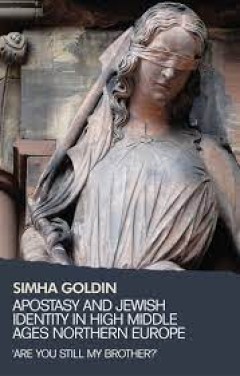
Apostasy and Jewish identity in High Middle Ages Northern Europe 'Are you st…
The attitude of Jews living in the medieval Christian world to Jews who converted to Christianity or to Christians seeking to join the Jewish faith reflects the central traits that make up Jewish self-identification. The Jews saw themselves as a unique group chosen by God, who expected them to play a specific and unique role in the world. This study researches fully for the first time the vario…
- Edition
- -
- ISBN/ISSN
- 9781526129345
- Collation
- -
- Series Title
- -
- Call Number
- -

Crafting the 613 Commandments Maimonides on the Enumeration, Classification,…
Rabbinic tradition has it that 613 commandments were given to Moses on Mount Sinai, but it does not specify those included in the enumeration. Maimonides methodically and artfully crafts a list of 613 commandments in a work that serves as a prolegemenon to the Mishneh Torah, his monumental code of law. This book explores the surprising way Maimonides put this tradition to use and his possible r…
- Edition
- -
- ISBN/ISSN
- 9781618118486
- Collation
- -
- Series Title
- -
- Call Number
- -

Living in Refuge: Ritualization and Religiosity in a Christian and a Muslim P…
This comparative ethnography of a Muslim and a Christian Palestinian refugee camp in Lebanon focuses on contrasting social belonging processes through a ritualization approach. Leonardo Schiocchet argues that contrasts emerge out of the intersectionality of religiosity, nationhood, refugeeness and politics, and synthesizes academic research on piety and moral self-cultivation and on the everyda…
- Edition
- -
- ISBN/ISSN
- 9783839460740
- Collation
- -
- Series Title
- -
- Call Number
- 351.81 SCH l
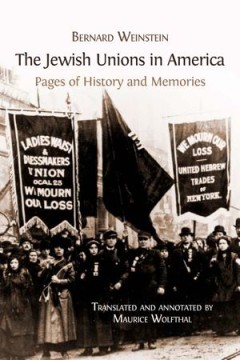
The Jewish Unions in America
"Newly arrived in New York in 1882 from Tsarist Russia, the sixteen-year-old Bernard Weinstein discovered an America in which unionism, socialism, and anarchism were very much in the air. He found a home in the tenements of New York and for the next fifty years he devoted his life to the struggles of fellow Jewish workers. The Jewish Unions in America blends memoir and history to chronicle this…
- Edition
- -
- ISBN/ISSN
- 9781783743551
- Collation
- -
- Series Title
- -
- Call Number
- -
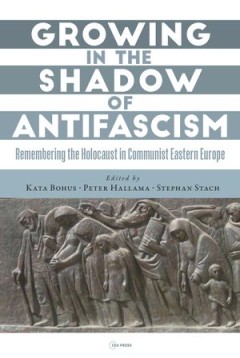
Growing in the shadow of antifascism : remembering the Holocaust in State-…
Reined into the service of the Cold War confrontation, antifascist ideology overshadowed the narrative about the Holocaust in the communist states of Eastern Europe. This led to the Western notion that in the Soviet Bloc there was a systematic suppression of the memory of the mass murder of European Jews. Going beyond disputing the mistaken opposition between “communist falsification” of hi…
- Edition
- -
- ISBN/ISSN
- 9789633864364
- Collation
- -
- Series Title
- -
- Call Number
- 940.53 GRO
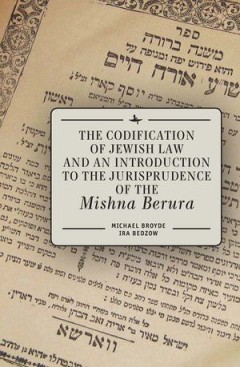
The Codification of Jewish Law and an Introduction to the Jurisprudence of th…
The Mishna Berura is, without a doubt, Rabbi Israel Meir Kagan's greatest and most complex contribution to the canon of Orthodox Jewish Law; it is a singular work that synthesizes Jewish traditions, laws, and mores into a practical halakhic guide to daily religious life. For all of his traditionalism, Rabbi Kagan was an iconoclast, and the Mishna Berura broke from many of the traditional approa…
- Edition
- -
- ISBN/ISSN
- 9781618112781
- Collation
- -
- Series Title
- -
- Call Number
- -
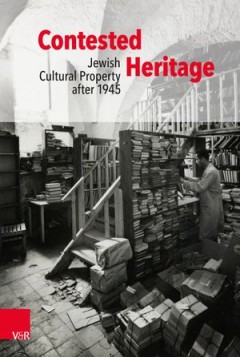
Contested Heritage : Jewish Cultural Property after 1945
In the wake of the Nazi regime’s policies, European Jewish cultural property was dispersed, dislocated, and destroyed. Books, manuscripts, and artworks were either taken by their fleeing owners and were transferred to different places worldwide, or they fell prey to systematic looting and destruction under German occupation. Until today, a significant amount of items can be found in private a…
- Edition
- -
- ISBN/ISSN
- 3666310834
- Collation
- -
- Series Title
- -
- Call Number
- -
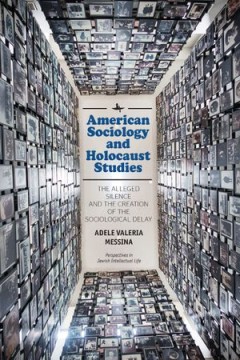
American Sociology and Holocaust Studies The Alleged Silence and the Creatio…
Filled with new elements that challenge common scholarly theses, this book acquaints the reader with the “Jewish problem” of sociology and provides what this academic discipline urgently needs: a one-volume history of the Sociology of the Holocaust. The story of why and how sociologists as well as the schools of sociological thought came to confront the Holocaust has never been entirely tol…
- Edition
- -
- ISBN/ISSN
- 9781644696637
- Collation
- -
- Series Title
- -
- Call Number
- -

Italian Jewry in the Early Modern Era Essays in Intellectual History
Between the years 1550 and 1650, Italy's Jewish intellectuals created a unique and enduring synthesis of the great literary and philosophical heritage of the Andalusian Jews and the Renaissance`s renewal of perspective. While remaining faithful to the beliefs, behaviors, and language of their tradition, Italian Jews proved themselves open to a rapidly evolving world of great richness. The crisi…
- Edition
- -
- ISBN/ISSN
- 9781618112088
- Collation
- -
- Series Title
- -
- Call Number
- -
 Computer Science, Information & General Works
Computer Science, Information & General Works  Philosophy & Psychology
Philosophy & Psychology  Religion
Religion  Social Sciences
Social Sciences  Language
Language  Pure Science
Pure Science  Applied Sciences
Applied Sciences  Art & Recreation
Art & Recreation  Literature
Literature  History & Geography
History & Geography